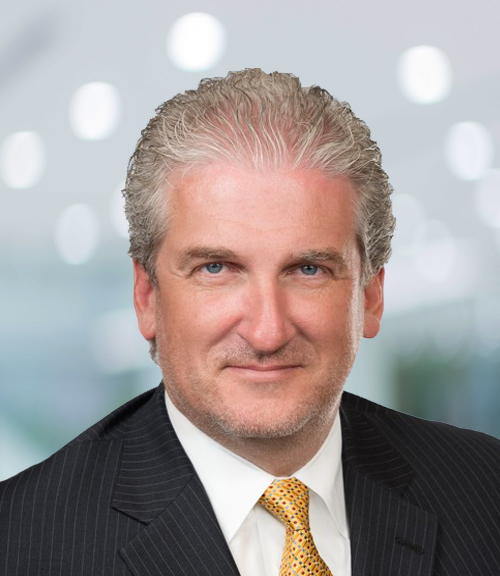How Can We Create A More Perfect CDMO?

By Louis Garguilo, Chief Editor, Outsourced Pharma

We the People of the Outsourcing Industry, in Order to form a more perfect Union, establish Service, ensure Reliability, provide for the general Welfare, and secure the Blessings of our system of drug development and manufacturing, and our Posterity, do ordain and establish this Constitution for working with CDMOs.
-- Preamble to the Outsourcing Constitution
My muse for this constitutional adaptation is Kurt Nielsen, who recently left his position as CEO of Pharmaceuticals International, Inc (Pii), a U.S.-based CDMO.
I’ve dialogued with Nielsen occasionally over the years. Frankly, I consider him a “Philosopher CEO,” if I might borrow clumsily from Plato.
So it’s no surprise post-resignation, he’s open to a grand discussion on our drug development and manufacturing outsourcing industry.
COVID Accelerated

“Yeah, cool blue, ocean blue, sky-blue night-sky. Everything's about calm. Can we all just get along in business,” he said.
The blue hues, though, have been ineffective in diminishing the passion he holds for “our service industry,” which he hopes to vastly improve someday.
Part of that enthusiasm was brought on by COVID. The virus reshaped our industry to a degree, and it became personal for Nielsen. He got the virus. His health challenge induced an evaluation of career and industry.
That introspection was already in the making, he says, but “I got firmly in touch with my life force. I'll put it that way.”
After serving decades as an executive in our industry, including at multiple CDMOs, he’s asking: Where should the next years lead me?
But there’s another question he’s pondering, one which envelops our entire development and manufacturing outsourcing industry:
How can we create a more perfect CDMO?
Before taking that on, Nielsen makes clear he is talking about the entire industry, and not any particular organization. Then this:
“I still have this hypothesis that nobody in the pharma-services business provides real customer service. That will continue to drive me forward. We should start with:
‘I will take care of you, Biopharma Customer. Here’s your project manager, your information delivery, the service aspect first. Here’s how it’s going to flow. Then we'll do great science, and supply your product.’
“If we lead with the customer service piece, it's the model that will absolutely carry the day.”
Nielsen believes the intention today is in fact to put the right group of people and the right service culture together. He references the extraordinary COVID-19 vaccine efforts, and how such a concentrated focus by all parties produced such amazing results.
But that was the exception. The normal experience of biopharma customers, he says, is to make due with the knowledge we are not operating in a frictionless manner, or nearly optimizing our outsourcing activities or outcomes. The customer feels they are getting what they need, don't have to deploy capital, etc.
“So we settle – on inferior service and delivery, and don’t realize a greater overall potential for product or experience,” says Nielsen.
He describes this as “the soft underbelly” of our industry.
“Let's actually create a new conversation around this outsourcing ‘model,’ as you call it in Outsourced Pharma,” he says. “Let's really be part of the solution to making this healthcare and life-science ecosystem work better, and not just mouth the words. There’s something more here.”
Among other things, that something will take time and financial backing, but Nielsen is considering a path to “give this another goal,” and realize a vision of a CDMO “actually based on service first.”
The Service Model
The service-first CDMO requires personnel to ably perform the development and manufacturing activities the drug sponsor would need to accomplish otherwise, but “with this added dimension of taking care of the customer.”
“There’s the normal work you would have to do inside pharma,” says Nielsen, “then you've got this thing called the ‘customer interface.’ This is where, from my standpoint, our services industry really struggles.”
It’s not the science or technology that’s the main challenge at a CDMO, he says. It’s the delivery of which that is insufficient, and where an improvement could in and of itself elevate final outcomes.
“That's why today, at least those companies that do project management well, get all kinds of repeat business,” says Nielsen. “But most companies struggle with that.”
He believes too few CDMOs put enough money or the right people into managing the customer interface, and neither money nor people are fed into a coherent system for customer service to begin with.
Just the opposite. The execution models at CDMOs are set up so any additional attention a customer asks for gets that customer labeled as difficult to work with.
“It's not really a service model at all,” Nielsen says. “Throughout our business, people mouth the words ‘customer service.’ I don't think we know what it means.”
A simple example:
“If you put a clock on companies and asked from the minute a customer asks you a question, ‘How long does it take to respond?’ would it be by the end of the day or the next day, after you have your work done?
“What are we as an industry really doing to provide that service to our customers? For me, it's an open question.”
Nielsen says challenges start at the courting phase, considering how companies “diligence deals, or even how CDMOs diligence customers.”
“I talk to people about how the selection decisions are made,” he says. “It's amazing much of it comes down to a focus on the science and the technology. They put a lot of weight on that connection alone, but project management and delivery need more weight. We don’t know how to measure that service relationship.
“Our professionals don’t pay enough attention to, for example, a measurement like your CMO Leadership Awards,” he adds. “That can provide a broader perspective about a CDMO from an informed readership.”
I thank Nielsen for the kind mention. I’ll bring you more of our conversation soon.
